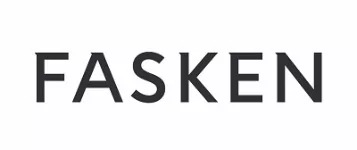Effective January 2022, the City of Burlington is the eighth municipality in Ontario to operate a lobbyist registry, joining Toronto, Peel Region, Ottawa, Brampton, Hamilton, Vaughan, and Collingwood. Its new lobbying policy1 includes a powerful sanction: The Mayor and councillors are prohibited from meeting with lobbyists who fail to register.
The Target: Private-Sector, High-Level Lobbying
Burlington's Corporate Policy on Lobbyist Registration targets private-sector engagement with the City. It only covers lobbying on behalf of business and financial interests.2
Coverage of non-profit organizations is limited and narrow: Lobbyist registration applies only to non-profits with employees, and only in relation to their financial interests (e.g., grants).3
The Policy's focus is high-level meetings. Registration is required before someone meets, virtually or in person, with a member of City Council. Other forms of communication, and meetings with non-elected City officials, are not currently covered.
A Council member must not commence lobbying-related communication (and must cease communication that has already begun) with anyone who intends to lobby and has not yet filed a lobbyist registration.4 In other words, companies and organizations could be shut out of vital contacts if their representatives fail to register.
Even Volunteers Must Register as Lobbyists
Following the lead of other Ontario municipalities, Burlington makes unpaid volunteers register in order to lobby. Its Policy recognizes three types of lobbyist:
- Voluntary unpaid lobbyist - someone who lobbies without payment on behalf, and for the benefit, of an individual, business or other entity
- Consultant lobbyist - someone who lobbies for payment on behalf of a client
- In-house lobbyist - an employee, partner or sole proprietor who lobbies on behalf of an employer, business or other entity
The City defines lobbying in a manner consistent with the definitions in other Ontario municipalities: "any communication with a public office holder by an individual who represents a business or financial interest with the goal of trying to influence legislative action." Legislative action includes, "development, introduction passage, defeat, amendment or repeal of a bylaw, motion, resolution or the outcome of a decision on any matter before Council or a Committee of Council."5
The focus on high-level meetings is achieved by defining communication as "a meeting (virtual or in-person)", and defining public office holder as a member of Burlington City Council.6 (This definition of public office holder is the narrowest of any lobbying regime in Canada.7)
Historic Application of "Undertaking Rule": Some Representatives Might Need to Register Prior to Actual Lobbying
Burlington has made history, becoming the only jurisdiction in all of Canada to apply the undertaking rule to in-house lobbying as well as consultant lobbying (and voluntary unpaid lobbying).
The undertaking rule starts the clock ticking toward a registration deadline as soon as one undertakes (agrees, promises or commits) to lobby, even if lobbying has not actually commenced. Only six other Canadian jurisdictions8 apply the undertaking rule to consultant lobbying, and no other lobbyist registry - federal, provincial, territorial or municipal - in Canada applies the undertaking rule to in-house lobbyists.9
A lobbyist must register within 10 days after entering into an undertaking to lobby or 10 days after the lobbying commences,10 whichever is first.11 This means that some representatives might need to register before actually starting to lobby.
The Policy clarifies that: "Only one registration needs to be filed for each undertaking even though the lobbyist may, in connection with the undertaking, (a) communicate with one or more public office holders on one or more occasions, or (b) arrange one or meetings between a public office holder and any other person."12
The lobbyist's registration must include:13
- Name of the employer, client, individual, or other entity whose behalf the lobbying occurs
- Name(s) of the Council member(s) being lobbied
- Subject matter
- Dates on which the lobbying will start and finish (no more than one year apart)
- Whether the lobbyist has consulted with elected or appointed City officials or City employees about the undertaking to lobby
- Whether the lobbyist has received government funding related to the undertaking to lobby
- Whether the lobbyist previously was member of Council, and the date of leaving the position
- Whether the lobbyist sits on a local board of the City
The registration must be updated within ten days of a change occurring.14
Lobbyists are Subject to Conduct Rules
Most municipal lobbying regimes include codes of conduct for lobbyists, and Burlington is no exception.
Individuals who lobby Burlington Council members:15
- Shall not represent competing or conflicting interests without receiving permission from those different parties
- Shall advise public office holders that they have informed their clients of any actual, potential or apparent conflict of interest and obtained the informed consent of each client concerned before proceeding or continuing with the undertaking to lobby
- Shall not lobby on matters regarding which they have also provided advice to the City
- Shall avoid the appearance, and reality, of impropriety
- Shall not knowingly place Council members in a conflict of interest, or in breach of the Code of Good Governance
The last point is particularly significant. A public office holder placed in a conflict interest by a lobbyist could be subject to an inquiry by the City's Integrity Commissioner, and face penalties under section 223.4 of the Municipal Act or section 9 of the Municipal Conflict of Interest Act.16 While the Integrity Commissioner does not have jurisdiction over lobbyists, the findings of an inquiry could create reputational risk for the lobbyist and the lobbyist's employer or client.
Enforcement
Anyone who fails to register will be cut off from access to City Council. Enforcement is the responsibility of all Council members. A Council member is prohibited from commencing lobbying-related communication with anyone who is not registered, and is required to cease any current communication with any unregistered lobbyist.17
Next Steps
The requirements of Burlington's lobbyist registry are complex. The risk of negative consequences (reputational harm and loss of access to Council members) is real. Businesses and organizations that have dealings with the City of Burlington, Ontario, should prepare now to comply with the registry and to train their employees in the new rules.
Footnotes
1 City of Burlington, Corporate Policy: Lobbyist Registration, Appendix to Report No. CL-28-21 [PDF].
2 Corporate Policy on Lobbyist Registration, "lobby" definition.
3 Corporate Policy on Lobbyist Registration, section 1.2 k).
4 Corporate Policy on Lobbyist Registration, section 5.1 ii).
5 Corporate Policy on Lobbyist Registration, "lobby" and "legislative action" definitions.
6 Corporate Policy on Lobbyist Registration, "communication" and "public office holder" definitions.
7 The City of Hamilton (By-Law 14-244) defines public office holders to include Council members and their staffs, and members of the Senior Management Team.
8 The federal, Alberta, Manitoba, Saskatchewan, Yukon and Surrey registries base the deadline to register consultant lobbying on the date of the undertaking to lobby.
9 The Regional Municipality of P eel (By-law Number 47-2016) comes close, requiring that "All lobbyists with intent to lobby must register as a lobbyist."
10 Corporate Policy on Lobbyist Registration, sections 2.1, 4.2.
11 While the Policy does not explicitly state, "whichever comes first," this meaning is clear from the context, including sections 2.2, 3.1(e), 3.2 (iii), and 4.1.
12 Corporate Policy on Lobbyist Registration, section 2.2.
13 Corporate Policy on Lobbyist Registration, sections 3.1, 3.2, 4.3, 4.4.
14 Corporate Policy on Lobbyist Registration, section 3.3.
15 Corporate Policy on Lobbyist Registration, Schedule A - Lobbyist Code of Conduct.
16 An Integrity Commissioner cannot impose penalties directly. In the case of a breach of the Code of Good Governance, the power to impose a penalty rests with Council under subsection 223.4(5) of the Municipal Act. The Integrity Commissioner cannot determine whether a breach of the Municipal Conflict of Interest Act occurred, but can make an application to a judge who would have authority to impose a penalty in the event of a breach.
17 Corporate Policy on Lobbyist Registration, section 5.1 ii).
The content of this article is intended to provide a general guide to the subject matter. Specialist advice should be sought about your specific circumstances.


